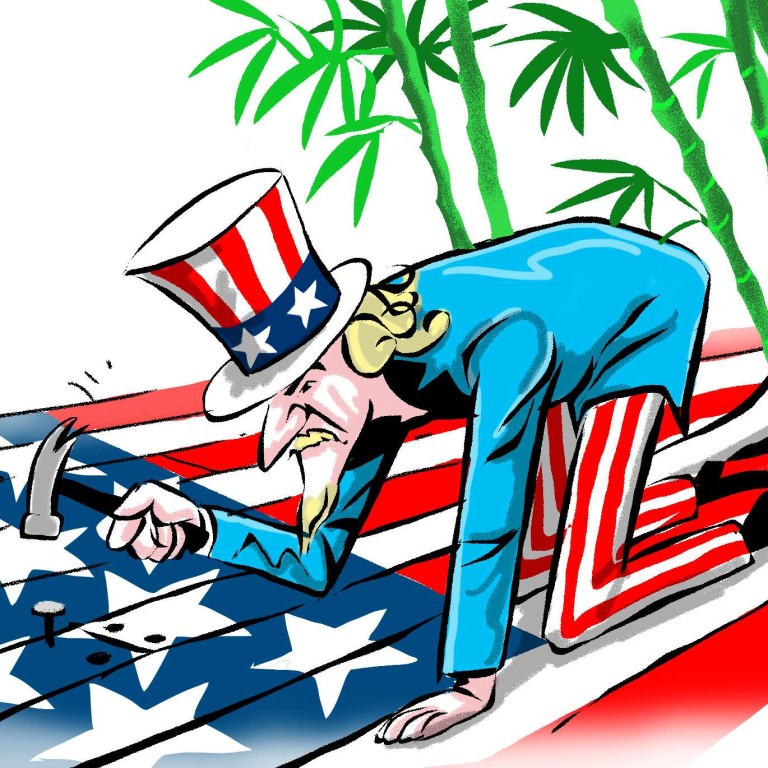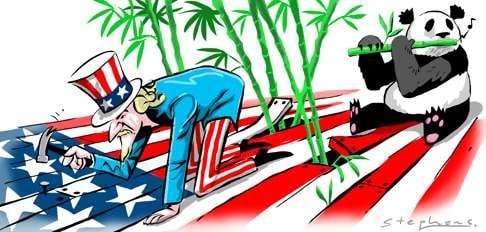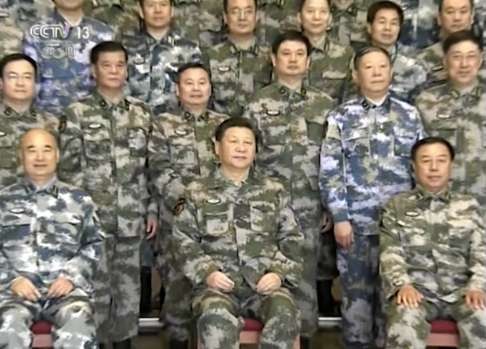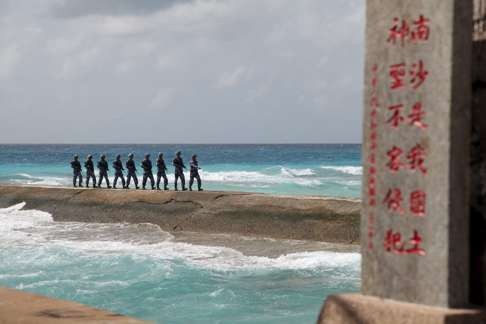
Why the US will gain nothing from seeking to contain China
Patrick Mendis and Joey Wang say both sides should seek to return to the principles that brought mutual economic benefit. For Beijing, this means showing it truly seeks a peaceful rise, while Washington must ditch its cold-war mentality

Much has been written about China’s “peaceful rise”. And with this meteoric rise there has been an increase in military modernisation and its assertiveness. This has raised concerns among China’s neighbours regarding its intentions.
US reveals it exercised right to freedom of navigation against 13 countries last year, including China’s rival claimants in the South China Sea

For its part, the US has responded to China’s rise by blowing the dust off of the old containment playbook of the former Soviet era and modifying it with an element of economic engagement. This “congagement” (containment and engagement) would seek to contain China militarily while continuing to engage it economically.
China wants peace and prosperity in the region. Yet, its actions create precisely the opposite conditions. Washington claims it welcomes China’s peaceful rise. Yet, it treats China like a parvenu that doesn’t fit into the American-led world order. Therefore, Beijing continually needs to be humbled.

Washington should continue to focus on building much needed trust, promoting fair competition and ... paving the road towards ‘mutually assured prosperity’
America’s commercial venture with China goes back to the founding of the nation, when the American revolutionary war privateer, Empress of China, made its maiden voyage from New York harbour in December 1784 to Canton (now Guangzhou) with a cargo of Spanish dollars, ginseng, furs, lead and wine, returning home the following May with tea, silk and porcelain.
Since the reform and opening up in 1979 under Deng Xiaoping (鄧小平), China’s significance to the world economy has increased significantly. China’s fixation with the South China Sea, Indian Ocean and other sea lines of communication is not without cause; its export economy survives by these trade routes. And any disruption to these routes would have a significant impact not only on China’s economy but also the global economy.
Recognising this fact and the potential disruption to the US economy, Washington should not only support Beijing in maintaining a healthy trade relationship, but continue to focus on building much needed trust, promoting fair competition and engaging China to join rule-based institutions, and paving the road towards “mutually assured prosperity”.
Washington and Beijing are currently pursuing over 80 bilateral dialogues. These initiatives should continue to promote cooperative efforts that serve both nations, rather than viewing the dynamics of this relationship as zero-sum. It is time to return to the vision of US Founding Fathers of a commercial nation that is “a shining city upon a hill”.

China to build up atoll in contested South China Sea, source says
The rise of China is a fait accompli. To suggest that the US should contain China and, if necessary, go to war is, in the words of former secretary of state Henry Kissinger, “as dangerous as it is wrong”. It makes even less sense when the US is borrowing money from China, in the form of Treasuries, to finance that possible conflict. Containment is a policy with numerous contextual elements that cannot simply be transferred from the Soviet era. The US attempts to contain China may make it a self-fulfilling prophecy. China is not the new Soviet Union.
In time, China’s “peaceful rise” will show its true colours. It is not clear whether its current behaviour is a product of regional hegemonic aspirations or simply manifesting its internal contradictions, factions and rivalry in the one-party system. The question of who can contain China is one that only the Chinese can answer for themselves. In the meantime, the US needs to remain vigilant and engage.
In the end, China has to capitalise on its “soft power”, with its Confucian ethics and cultural heritage from which America’s Founding Fathers once sought inspiration. Beijing should promote peaceful relations with its neighbours, influence potential allies and return to its official policy of a peaceful rise with clarity in words and consistency in actions.
That’s quintessentially “living in harmony” with the Tao – the Chinese Way.
Patrick Mendis is a Rajawali senior fellow of the Kennedy School of Government’s Ash Centre for Democratic Governance and Innovation at Harvard. He served as a Pentagon professor and US diplomat during the Clinton and Bush administrations, and is currently serving as a commissioner to the US National Commission for Unesco, an appointment by the Obama administration. Joey Wang is a defence analyst. The views expressed here are the authors’ own


